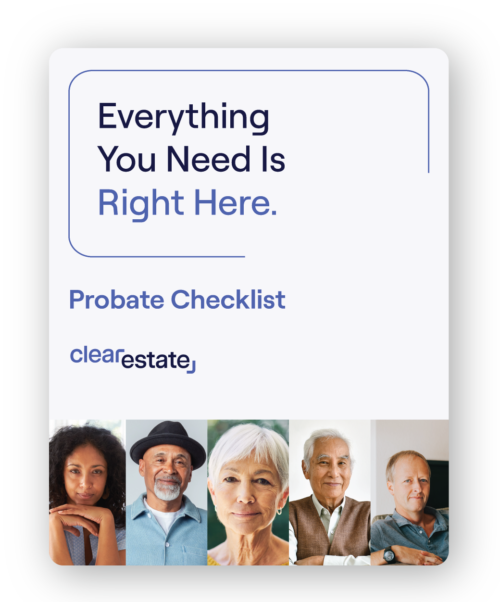Estate Settlement
Apr 04, 2024
How To Apply For Probate in Ontario (step-by-step)
Applying for probate in Ontario? Our guide covers submitting the necessary estate forms to the Superior Court and more, step-by-step.


It’s not a pleasant topic to talk or think about, but when someone close to you dies, there are things that need to happen quite quickly. One of those is notifying any relevant parties that your loved one has passed. But who exactly are those relevant parties? And who should you call first? Here’s how you should proceed:
We regularly share relevant information about wills and estates.
If the death occurred in your home, then you need to call emergency services so that they can send over a medical team to help you figure out what comes next. If the death occurred in a hospital or hospice, then the staff on hand should be called if they’re not already present. You’ll also need to get a legal pronouncement of death from the medical team or hospice staff in order to obtain a death certificate, start making funeral arrangements, and begin the process of settling their estate.
After the relevant medical authorities have been informed, it’s time to reach out to close friends and family. This includes spouses, children, siblings, parents, life partners, close family friends, and anyone else who was in your loved one’s inner circle. While this step will surely be incredibly painful and difficult, it can also be an opportunity to share your grief and lean on others for support. Also remember that everyone grieves differently, and some may want to process the news alone while others might seek out company and comfort.
If the deceased was employed at the time of death, now’s the time to reach out to their employer to let them know what happened. The same goes for any professional contacts your loved one had. If they were a lawyer with ongoing clients, for example, you’ll have to get in touch with those clients and give them the news.
If your loved one had outstanding appointments with dentists, hearing aid technicians, oculists, or any other health professionals, you’ll need to call and cancel those appointments and let them know that their patient has passed. This also goes for your loved one’s general practitioner, if they weren’t present at the death.
Perhaps the deceased was renting their home or apartment, perhaps they owned their home and were paying off a mortgage, or perhaps they were receiving housing from a government housing authority. Either way, the relevant authorities—whether that be a landlord, the mortgage provider, or housing association—will need to be notified.
If, at the time of their death, your loved one was receiving a pension or any other types of government services, such as unemployment, disability, or other social services, then it’s your responsibility to notify the relevant authorities and cease the benefits, or—as is the case with pensions that have named beneficiaries—redirect the funds to designated recipients.
Now’s the time to reach out to banks and other financial organizations where your loved one opened investment accounts, savings accounts, and other types of financial services. This also includes any credit cards your loved one had. You should also reach out to insurance providers where the deceased held policies, such as medical insurances, car and travel insurance companies, and legal insurances. At this point, you’re probably in the process of settling your loved one’s estate, and getting in touch with these organizations will be a key point in assessing the value of the estate.
At this point, you’ve hopefully already set up a mail forwarding system so that any bills and mail your loved one is still getting arrive at a safe place. Creditors, utilities such as the phone, gas, and electricity company, magazine and newspaper subscription service, and countless other entities who send out mail don’t know that the person at that address has passed. Now’s the time to sort through your loved one’s subscriptions, outstanding bills, and credit institutes in order to notify them of the death.
The responsibilities that come with a loved one’s death aren’t easy. That’s why we’re here to help you navigate the days and months to come and take as much off your plate as possible. With an experienced, competent partner like ClearEstate, navigating the estate settlement process doesn’t have to be stressful or expensive. Come chat with us and find out how we can help.
 Take the Guesswork Out of Probate
Take the Guesswork Out of Probate
Join the 100,000+ executors who have downloaded our free step-by-step blueprint to probate.
Download yours for free!